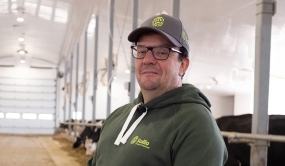
I wrote an editorial for this publication back in December of 2006 titled “Heureux Boutan”. I was then very pleased to discover that Bhutan, a small country positioned between China and India, had adopted a novel way to measure its development: the Gross National Happiness Index (GNHI). Governed by the then King of Bhutan, Jigme Singye Wangchuck, and the country’s political strategy was built on four fundamental and equally important principles: Economic growth and development, conserving and promoting culture, safeguarding the environment, and responsible government. While everyone else was dependent upon the Gross Domestic Product (GDP), this small south central Asian country was doing its own thing by focusing on happiness.
However, many have demonstrated how a country’s GDP can be misleading thus creating false impressions.
The GDP is constantly being monitored where even a slight rise can generate a slew of congratulations, as if it were a lucky charm bringing happiness and joy to all. Yet this index cannot distinguish the nature of the production on which it feeds.
So imagine if your home was destroyed by fire - you obviously need to rebuild. What if the land needs to be decontaminated? Or perhaps you need to be hospitalised? Great! Now the GDB goes up a few points. However, volunteer work doesn’t count since the GDP frowns upon such pursuits. In fact, I attended a conference in which a similar situation was described with much humour: A young man falls in love then gets married, so he no longer needs cleaning services. There goes the GDP!
Let’s say that the GDP has served us well and it is now time to move on. It was once useful when production performance was the only consideration, but nowadays, we have greater aspirations. We are increasingly interested in the social and environmental consequences of production, which brings us to seek development that is sustainable. Ultimately, we seek happiness!
Last January a study published in Nature, a prestigious magazine, prompted a statement from journalist Olivier Schmouker in Les Affaires: No, the future is not in economics. It is social. The study’s purpose was to define the various levers governments’ should prioritise to improve their population’s wellbeing.
Two types of levers were submitted for analysis: Material levers, such as the adoption of measures intended to increase the GDP; as well as immaterial levers, such as the adoption of measures intended to strengthen human relationships.
Several econometric calculations later, the results are clear: Material levers have little to no effect on happiness. However, immaterial levers are, as stated by Schmouker, "highly efficient". He further declared that we needed to stop focusing all our attention on the GDP and those other accounting indicators, and work on improving the social fabric of our communities.
And that’s why Bhutan came to mind and why I wanted to check in on this small Asian country. Is the GNHI still in effect or was it just a passing fancy? A quick search indicated that they maintained the GNHI. In fact, it was officially integrated into the Bhutan Constitution in 2008. Its culture was preserved: A reporter recently visited the country and witnessed the purity and authenticity of its religious holidays and abundant artistic heritage. Conserving the environment? This same journalist mentioned that 70% of the land is covered with stunning forests. It’s a veritable Eden for hikers, bird watchers and botanists alike. As for governance, they’ve gone from an absolute monarchy to a bicameral constitutional monarchy. The country’s economy? Well, that’s their Achilles’ heel. The Bhutan economy remains one of the least developed in the world.
In fact, according to a statement from Françoise Pommeret, a French ethnologist now residing in Bhutan, the “country of happiness” has a dark side: refugees are mistreated refugees, young people are unemployed, there is family violence and poverty. Alas, there are no miracles in Bhutan. But there is certainly an innovative and inspirational approach that disturbs our biggest paradigms… with a boldness that I still find appealing.










